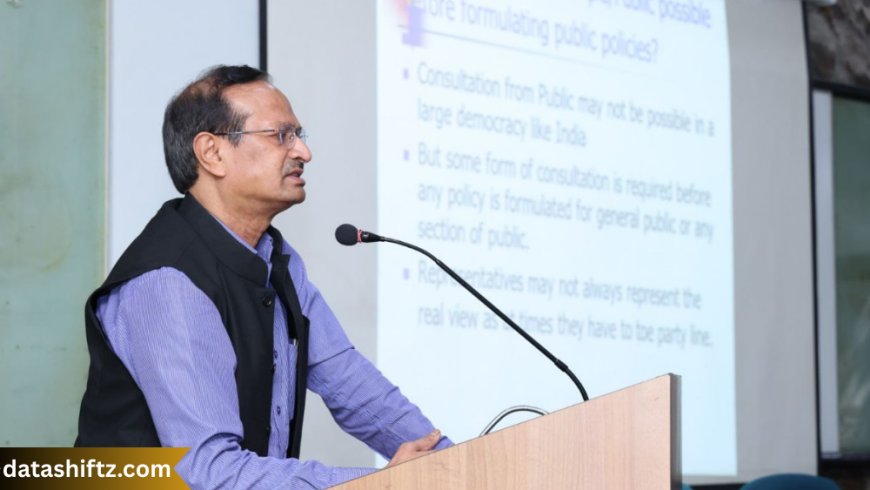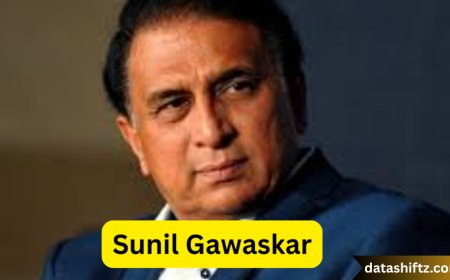Sanjay Kumar & CSDS: Mapping Democracy Through Data

The Centre for the Study of Developing Societies (CSDS), headquartered in New Delhi, has been at the forefront of empirical social science research in India. At the helm of its renowned Lokniti programme stands Professor Sanjay Kumar—a political analyst, psephologist, and former Director of CSDS. Kumar’s research has illuminated electoral politics, youth engagement, and the status of democracy across South Asia. Yet, in August 2025, he made headlines not just for scholarly contributions, but also for a rare mishap in electoral data reporting—an episode that underscores the high stakes of data-driven political discourse.
Academic Leadership & Research Direction
Career and Role at CSDS
Sanjay Kumar served as Director of CSDS from January 2014 to January 2020, succeeding Rajeev Bhargava. He continues to serve as a Professor and Co‑Director of Lokniti, CSDS’s flagship research programme on comparative democracy
Kumar holds a B.A., M.A., and M.Phil in Political Science from the University of Delhi, and trained at the University of Michigan Survey Research Center
Research Themes & Publications
His areas of research include electoral politics, Indian youth, democracy in South Asia, urban slums, farming communities, and electoral violence, approached primarily through survey methodologies
Key works include:
-
Elections in India: An Overview (Routledge, 2021)
-
Post Mandal Politics in Bihar: Changing Electoral Patterns (SAGE, 2018)
-
Changing Electoral Politics in Delhi: From Caste to Class (SAGE, 2013)
-
Measuring Voting Behaviour in India (with Praveen Rai, SAGE, 2013)
-
Rise of the Plebeians? The Changing Face of Indian Legislative Assemblies (with Christophe Jaffrelot, Routledge, 2009)
-
Indian Youth in a Transforming World (with Peter R. deSouza and Sandeep Shastri, SAGE, 2009)
-
Women Voters in Indian Elections: Changing Trends and Emerging Patterns (Routledge, 2022)
He has also contributed hundreds of articles to English and Hindi national publications—including The Hindu, Indian Express, Dainik Bhaskar, Rajasthan Patrika, and The Mint—and appears frequently as an election analyst on television
Data Stewardship & Election Studies
National Election Studies & Youth Surveys
Under Kumar's leadership, Lokniti-CSDS conducted multiple rounds of National Election Studies (NES): 1998, 1999, 2004, 2009, 2014, and 2019, as well as various State Assembly Election Surveys and State of the Nation Surveys These remain among the most comprehensive empirical resources on electoral behavior in India.
He also spearheaded multi-round surveys focused on Indian youth—surveying aspirations, anxieties, political participation, and identity—conducted in collaboration with organizations like Konrad Adenauer Stiftung in 2007, 2013, 2016, and 2021
International Engagements & Electoral Governance
Kumar has represented CSDS as an international election observer, including for the Asia-Pacific network ANFREL. He contributed to drafting the “Citizens Charter for Free and Fair Elections in Asia” and has worked on electoral violence across the region under UNDP’s purview
His insights have informed institutions like the Election Commission of India, parliamentary committees, and the Ministry of Youth. He has also led research on MGNREGA implementation, policing, and urban welfare services
Accountability, Controversy, and the Weight of Data
Misinterpretation of Maharashtra Voter Data
In August 2025, Sanjay Kumar generated controversy by tweeting dataset figures comparing electoral rolls for 2024 Lok Sabha and Assembly elections in Maharashtra—claiming drastic anomalies: e.g., a 47% surge in Nashik West and a 43% rise in Hingna, and steep drops in Ramtek and Deolali
The claims were rapidly amplified by opposition leaders as evidence of voter manipulation.
Apology and Institutional Repercussions
Within 48 hours, Kumar retracted the data, deleted the posts, and issued a public apology, citing row misreading by the data team and asserting lack of intent to misinform
The Indian Council of Social Science Research (ICSSR), which funds CSDS, responded by issuing a show-cause notice, accusing CSDS of "data manipulation" that undermined the sanctity of the Election Commission
The BJP criticized the episode sharply, accusing CSDS of fueling partisan narratives and questioned the motivation behind the error
At a Glance: Profile & Controversy Overview
| Category | Details |
|---|---|
| Academic Role | Professor and Co-Director, Lokniti; Ex-Director, CSDS |
| Research Focus | Electoral politics, Indian youth, democracy, urban poverty |
| Key Publications | Elections in India; Post Mandal Politics in Bihar; and others |
| Surveys Directed | National Election Studies (1998–2019); Youth Surveys (2007–2021) |
| International Engagement | Election observer; contributed to Asia-wide electoral charters |
| 2025 Controversy | Erroneous data tweets re: Maharashtra voters, retracted & apologized |
| Institutional Response | ICSSR show-cause notice; political backlash; debate on data integrity |
Key Takeaways
-
Academic distinction: Sanjay Kumar has shaped panchromatic understandings of Indian democracy through empirical research and national surveys.
-
Lokniti impact: The National Election Surveys and Youth Studies are foundational for electoral scholarship and policymaking in India.
-
Public intellectual: His analysis influences media, political debates, and public understanding—reaching beyond academia.
-
Data accountability: The 2025 voter data blunder highlights the immense responsibility of researchers, especially in politically charged arenas.
-
Institutional stakes: The ICSSR’s action underscores the institutional repercussions of research errors—especially for publicly funded bodies.
-
Trust deficit implications: The incident may erode public confidence in research institutions and fuel politicization of data.
Conclusion
Sanjay Kumar occupies a unique position at the nexus of academia, media, and public policy—steering one of India's premier research institutions through rigorous investigations of elections, youth attitudes, and democratic health. His body of work remains indispensable to scholars, journalists, and civic institutions. Yet, the controversy of August 2025 serves as a cautionary tale: in the age of instant scrutiny and political polarization, precision in data handling is paramount, and academic neutrality can be swiftly politicized.
Moving forward, this episode should prompt tighter internal validation protocols at research centers, while preserving their freedom to pursue independent inquiry—because well-conducted social science remains vital to democratic resilience.





























